The American Dream is a popular concept in American literature, and perhaps an even more popular study topic for high school English students.
Its roots lie in the 1776 Declaration of Independence, which sets down the “self-evident… truth… that all men are created equal” and “are endowed by their Creator with certain unalienable Rights” such as “Life, Liberty and the pursuit of Happiness”.
Later, writer and historian James Truslow Adams gave this idea its cultural currency with the phrase “American Dream”, the definition of which he sets down in his 1931 book The Epic of America:
It is “a dream of a better, richer and happier life for all our citizens of every rank.”
To modern ears, this aspiration could – perspective depending – ring hollow, quixotic, or ‘too socialist’. It is hollow because who doesn’t want a ‘better, richer and happier life for all’; it is quixotic because history has not shown this to be a feasible pursuit thus far; and it is ‘too socialist’ because a capitalist world order is fundamentally against the attainment of prosperity at “every rank”.
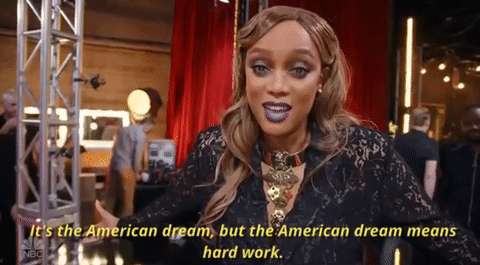
Courtesy of the ever widening socio-economic gaps in our world today, Adams’ articulation of ‘The American Dream’ is, at this moment in time, suffering a crisis of faith.
Ironically, then, what is supposed to be a ‘Dream’ with the potential of becoming reality now looks more dreamlike and distant than ever.
But this isn’t the first time ‘The American Dream’ has come under siege.
Back in the 1920s-1930s, F. Scott Fitzgerald and John Steinbeck, arguably two of the greatest American writers of all time, recognised the Dream for what it really is – a ‘too good to be true’ promise spun out of a quasi-nationalistic myth, one which doesn’t square with the basics of human nature.
Even worse, they noticed that more and more Americans willingly bought into this lie, eventually becoming unwitting victims of a cultural Ponzi scheme.
Out of this sobering awareness spawned two literary classics – The Great Gatsby and Of Mice and Men. Both novels, different though they may be in historical context and narrative focus, are at once beautifully written, emotionally resonant, culturally astute and occasionally dreaded (but also occasionally enjoyed) by English students.
Let’s now close read key sections from each novel to see what ‘The American Dream’ meant for Flapper Era and Great Depression “citizens of every rank”, and what it could possibly mean for us today.
The Great Gatsby (1925), F. Scott Fitzgerald
To start, we must ask a burning question:
What makes Gatsby ‘great’?
One way of understanding Gatsby’s greatness is to see it as martyrdom, rather than achievement.
From the reader’s vantage, Gatsby is great because Fitzgerald ‘sacrifices’ our protagonist to expose a larger truth about the biggest untruth touted to a generation – the idea that life, liberty and the pursuit of happiness is equally accessible to all, and that anyone can achieve these goals regardless of deterministic circumstances.
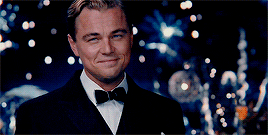
But the truth ain’t so, as Fitzgerald tells us in an interpolated lyric excerpt right before Gatsby and Daisy reunite for the first time after many years –
One thing’s sure and nothing’s surer
The rich get richer and the poor get – children.(Ch. 5)
As such, Gatsby is a hero of the Promethean, rather than Herculean, tradition.
Like Prometheus who stole fire from the Gods for the benefit of Man and was subsequently punished, Gatsby ‘stole’ Daisy and the upper-class lifestyle that she represents, and as a result, receives both emotional and physical retribution (Daisy’s ultimate rejection of him for Tom Buchanan, and his murder by George Wilson).
Thou shalt not covet what isn’t in your native domain; just as fire belonged exclusively to the Gods, so an upper-class debutante will only ever belong to the Rich. So back off, you lowly-born mortals, or else.
And Gatsby is deeply aware of his incongruence in Daisy’s world –
But [Gatsby] knew that he was in Daisy’s house by a colossal accident. However glorious might be his future as Jay Gatsby, he was at present a penniless young man without a past, and at any moment the invisible cloak of his uniform might slip from his shoulders. So he made the most of his time. He took what he could get, ravenously and unscrupulously – eventually he took Daisy one still October night, took her because he had no real right to touch her hand.
(Ch. 8)
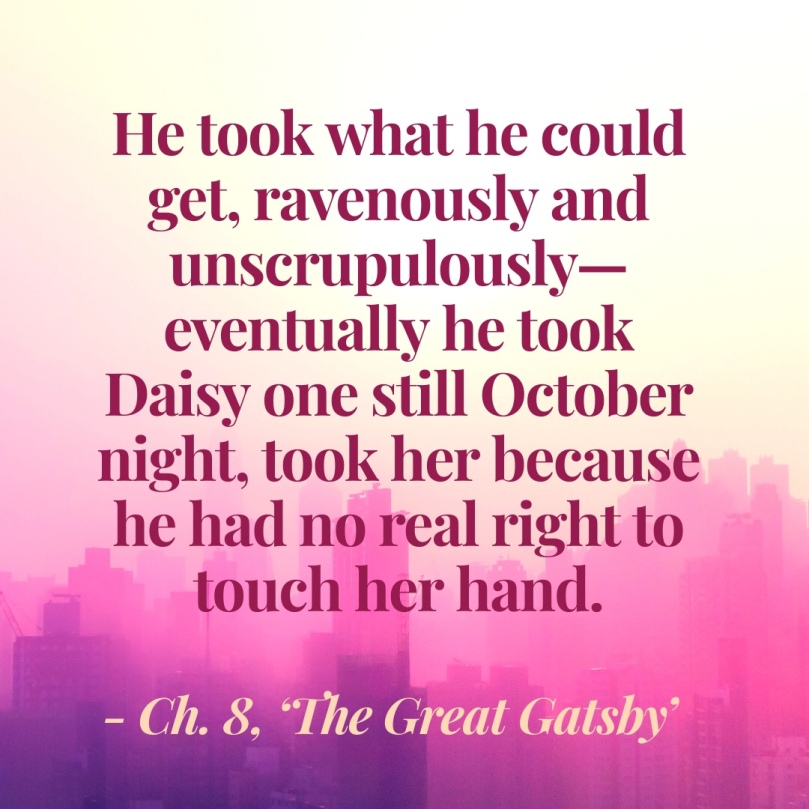
Yet, Gatsby’s story isn’t so much a cautionary tale against reaching for what isn’t supposed to be ours, as it is a sociological examination of just what is ‘supposed’ to be ours.
If the American Dream is about granting everyone – from the lowest to the highest rungs of society – the chance of a ‘better, richer and happier life’, then why is “penniless” Gatsby’s desire of well-endowed Daisy cast in such an illegitimate light, with his ‘taking’ of Daisy described as a “ravenous and unscrupulous” attempt?
Could it be, then, that by virtue of being “penniless” and “without a past”, Gatsby has already committed a deterministic crime – that of being born lowly but wanting ‘higher’ pleasures in life.
The metaphor of an “invisible cloak” for his military “uniform” characterises Gatsby as a sorcerer-type figure, as a surreptitious ‘Other’ lurking in an otherwise normal milieu.
In any case, the implication seems to be that if he’s not a necromancer, then he’s an outright thief who has cadged a jewel that he “has no real right to”.
What does ‘The American Dream’ mean for Jay Gatsby?
Perhaps one of the greatest ironies about Gatsby is that he doesn’t actually understand ‘The American Dream’, and what he believes will grant him a ‘better, richer and happier life’ is in fact tragically misguided.
To start, his pursuit of Daisy is largely fuelled by his obsession with inherited wealth, which goes against the entrepreneurial and egalitarian grain of the American Dream.
For all the hook and crook methods Gatsby uses to amass his nouveau-riche fortune (e.g. bootlegging), the man isn’t really after financial success or social status, both of which he technically achieves but isn’t made happy by.
In fact, Gatsby is not a really after Daisy the woman either, but Daisy the symbol of born prestige.
It appears, then, that Gatsby is less so a victim of unrequited love than a sufferer of misguided expectations.
What he truly desires is the biological lottery of being born into social aristocracy, which no amount of hard work can achieve.
This, in fact, is the root of his tragedy.
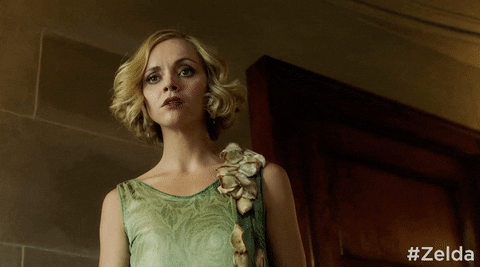
Such a desire is made clear in the description of Gatsby’s first visit to Daisy’s house, back in the days when he was still in the WWI infantry –
He went to her house, at first with other officers from Camp Taylor, then alone. It amazed him – he had never been in such a beautiful house before. But what gave it an air of breathless intensity was that Daisy lived there – it was as casual a thing to her as his tent out at camp was to him. There was a ripe mystery about it, a hint of bedrooms upstairs more beautiful and cool than other bedrooms, of gay and radiant activities taking place through its corridors and of romances that were not musty and laid away already in lavender but fresh and breathing and redolent of this year’s shining motor cars and of dances whose flowers were scarcely withered. It excited him too that many men had already loved Daisy – it increased her value in his eyes. He felt their presence all about the house, pervading the air with the shades and echoes of still vibrant emotions.
(Ch. 8)
It’s important for us to note that the locus of Gatsby’s infatuation here is firmly placed in the material, not the human. It also wouldn’t be unreasonable to argue that Gatsby perhaps never truly loved Daisy, but is instead completely absorbed by the otherworldly worldliness of a girl who represents the identity he so idolises but can never acquire.
For instance, what primarily draws Gatsby to Daisy’s house isn’t anything about how Daisy moves or behaves in it.
Instead, he’s more fascinated by the traces, smells and sounds of Wealth interacting with Wealth that “pervad[es] the air” of her house.
This is an aura which exudes the energies of a social caste metonymised by “this year’s shining motor cars” and “dances whose flowers were scarcely withered”, both of which are superficial social markers which he goes on to obtain with his ‘new money’.
Tellingly, it is the thought of Daisy as an item of popular masculine conquest which excites him the most.
This shows that his love, while intense and steadfast, is more a matter of sociological transcendence for himself, than of genuine engagement with a woman who is flawed, weak and not at all the angelic saint he imagines her to be.
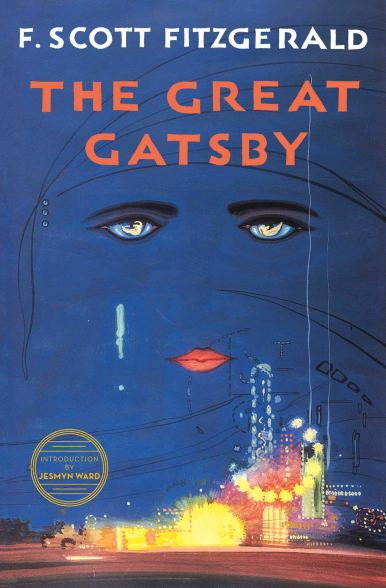
What’s wrong with Gatsby’s vision of ‘The American Dream’?
Throughout the novel, Gatsby is often associated with extravagant, sometimes florid, descriptions of material opulence, whether they be about food, décor or attire (I’ve written another post on repetition in which I reference a moment of excess in Gatsby).
To compensate for his lack of high-born capital, he pursues all the trappings of wealth in an attempt to refashion his life narrative.
And while the pursuit of wealth per se isn’t the cause of his undoing, the bumbling excess with which he pursues it, is.
This is evident in Chapter 3, right before the dinner party at Gatsby’s mansion commences –
Every Friday five crates of oranges and lemons arrived from a fruiterer in New York – every Monday these same oranges and lemons left his back door in a pyramid of pulpless halves. There was a machine in the kitchen which could extract the juice of two hundred oranges in half an hour, if a little button was pressed two hundred times by a butler’s thumb.
At least once a fortnight a corps of caterers came down with several hundred feet of canvas and enough coloured lights to make a Christmas tree of Gatsby’s enormous garden. On buffet tables, garnished with glistening hors d’oeuvre, spiced baked hams crowded against salad of harlequin designs and pastry pigs and turkeys bewitched to a dark gold. In the main hall a bar with a real brass rail was set up, and stocked with gins and liquors and with cordials so long forgotten that most of his female guests were too young to know one from another.
By seven o’clock the orchestra has arrived – no thin five piece affair but a whole pit full of oboes and trombones and saxophones and viols and cornets and piccolos and low and high drums…
(Ch. 3)
The metaphor of “a pyramid of pulpless halves” for discarded citrus shells is pregnant with symbolism.
Like Gatsby, whose ambitious zeal to gain as much as he can out of life is constant and febrile, his butler is made to “extract the juice of two hundred oranges in [just] half an hour” – a misplaced, if not downright wasteful, application of overzealousness.
This, of course, hints at Gatsby’s thirst for what he perceives to be the elixir of a ‘good life’. But too much of a good thing could be lethal, which is perhaps a message couched in the memento mori of a “pyramid” and the skull-like shapes of “pulpless halves” sucked dry to the core.
On the other hand, the set-up of the dinner party reads like an overdone spectacle, with the dishes coming across more like ornaments for show than food for consumption. “Glistening hors d’oeuvre”, “salad of harlequin designs”, “pastry pigs and turkeys bewitched to a dark gold” – the impression is one of presentation too well-done, too delicately decorated to be sullied by gross ingestion.
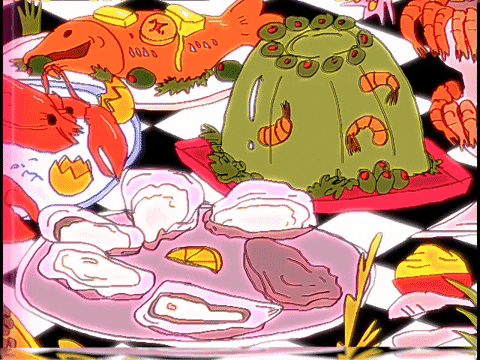
Meanwhile, Gatsby’s garden, while “enormous”, bears no trace of natural vegetation, but is instead adorned with the artifice of “canvas” and “coloured lights”; so ridiculously, excessively decorated is his space that it looks more like a Christmas tree than a real garden.
To complete this platter of sensory indulgence, there’s the retinue of a full orchestra, but the way with which Fitzgerald trots out a mechanical string of polysyndetons – “a whole pit full of oboes and trombones and saxophones and viols and cornets and piccolos and low and high drums”, highlights not melodic ambiance, but atmospheric cacophony made up of too many instruments that don’t really go together.
This is a jarring scene packed to the brim with external markers of supposed cultural refinement, but is fundamentally unnatural, strained and lacking in real harmony.
It seems reasonable to say, then, that Gatsby becomes a tragic scapegoat of ‘The American Dream’ largely because he doesn’t really understand it.
But this isn’t entirely the fault of one man who wanted ‘too much’. After all, the myth of social mobility against all odds is a damned lie, and a dangerous one at that.
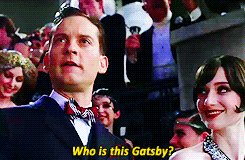
Of Mice and Men (1937), John Steinbeck
For a book that is so overwhelmingly concerned with issues of masculinity, Of Mice and Men is also deeply emotional and elegiac, especially in its portrayal of George Milton and Lennie Small’s friendship.
If Gatsby is the ‘rags to riches’ representative of ‘The American Dream’, then George and Lennie are, well, just rags.
Living in the Great Depression, their existence is solely about hustling for basic survival; the 1920s world of glitzy parties and glamorous Flappers is just about as alien to these migrant ranch workers as Mars would be to Earthlings.
Despite the socio-economic differences between Fitzgerald and Steinbeck’s protagonists, however, they share a similar spirit and fate.
These are men who struggle for the ‘Dream’ of boundless opportunity, having bought into the cultural promise of a “better, richer and happier life for Americans of every rank”, but ultimately die (literally or emotionally) without fulfilling this Dream.
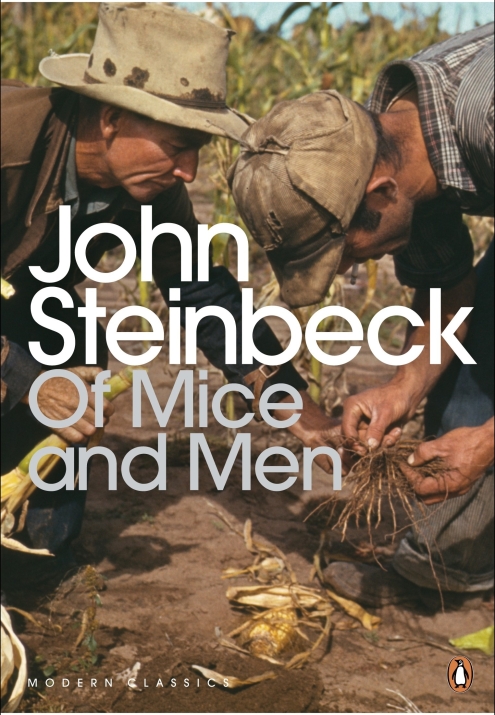
Why does George kill his best friend, and what does this tell us about the failings of ‘The American Dream’?
A central question in Of Mice and Men is what George’s ‘mercy killing’ of Lennie symbolises in relation to ‘The American Dream’ concept.
Towards the end of the novel, Lennie runs away from the farm after accidentally breaking the neck of Curley’s wife. He then hides in a spot that George had previously designated as a ‘fugitive place’ for Lennie whenever he gets into trouble.
Upon realising what his friend had done, George decides on a course of action that he believes will put Lennie out of his misery once and for all –
Lennie said, “George.”
“Yeah?”
“I done another bad thing.”
“It don’t make no difference,” George said, and he fell silent again.
Only the topmost ridges were in the sun now. The shadow in the valley was blue and soft. From the distance came the sound of men shouting to one another. George turned his head and listened to the shouts.
Lennie said, “George.”
“Yeah?”
“Ain’t you gonna give me hell?”
“Give ya hell?”
“Sure, like you always done before. Like, ‘If I di’n’t have you I’d take my fifty bucks-“
“Jesus Christ, Lennie! You can’t remember nothing that happens, but you remember ever’ word I say.”
“Well, ain’t ya gonna say it?”
George shook himself. He said woodenly, “If I was alone I could live so easy.” His voice was monotonous, had no emphasis. “I could get a job an’ not have no mess.” He stopped.
“Go on, said Lennie. “An’ when the enda the month come –“
“An’ when the end of the month came I could take my fifty bucks an’ go to a… cat house-“ He stopped again.
Lennie looked eagerly at him. “Go on, George. Ain’t you gonna give me no more hell?”
“No,” said George.
“Well, I can go away,” said Lennie. “I’ll go right off in the hills an’ find a cave if you don’t want me.”
George shook himself again. “No,” he said. “I want you to stay with me here.”
Lennie said craftily – “Tell me like you done before.”
“Tell you what?”
“Bout the other guys an’ about us.”
George said, “Guys like us got no fambly. They make a little stake an’ then they blow it in. They ain’t got nobody in the worl’ that gives a hoot in hell about ‘em-“
“But not us,” Lennie cried happily. “Tell about us now.”
George was quiet for a moment. “But not us,” he said.
“Because –“
“Because I got you an’-“
“An’ I got you. We got each other, that’s what, that gives a hoot in hell about us,” Lennie cried in triumph.
The little evening breeze blew over the clearing and the leaves rustled and the wind waves flowed up the green pool. And the shouts of men sounded again, this time much closer than before.
George took off his hat. He said shakily, “Take off your hat, Lennie. The air feels fine.”
Lennie removed his hat dutifully and laid it on the ground in front of him. The shadow in the valley was bluer, and the evening came fast. On the wind the sound of crashing in the brush came to them.
Lennie’s playful insistence that George is “gonna give [him] hell” – in the sense of a harsh telling-off, is painfully ironic here.
Because very soon, George will be sending him off to an otherworldly domain: the afterlife.
But here’s the question: will Lennie be going to the actual (or Christian) ‘Hell’, or does he belong in Heaven instead?
He may have killed animals and Curley’s wife, but he never did them out of malice, only of unintentional strength and underdeveloped awareness.
At his core, Lennie is perhaps the purest out of all the characters.
And so, we’re forced to consider this from a philosophical angle. Does the act of killing itself constitute the greatest evil?
Or are there far greater forces of evil beyond manslaughter, such as the absolute lack of human feeling of Curley, the ugliness of racial segregation on the ranch between Crooks and the other workers, or most of all, the indifferent and haphazard ‘hand’ of Fate, which places deserving people in disadvantaged circumstances, and vice versa?
In this moment, George also echoes his words said at the start of the novel, as he retells – for the last time to Lennie – their ‘underdog’ triumph story of being men with no background, but having all the camaraderie and optimism needed to succeed.
Alas, Steinbeck exposes this to be a happy delusion, useful as temporary reprieve for a hard life, but not to be taken too seriously.
And it is precisely because Lennie believes so wholeheartedly in this paradisiacal ‘Dream’ of self-sufficiency, of owing their own house, tending to rabbits, and “living off the fatta da lan’”, that he must cease to live.
Compared to the quietus administered by a dear friend, perhaps the heartbreak of this Dream only ever staying a dream is a lot crueller in the long run.
As the narrative continues, we are pushed towards its violently merciful end –
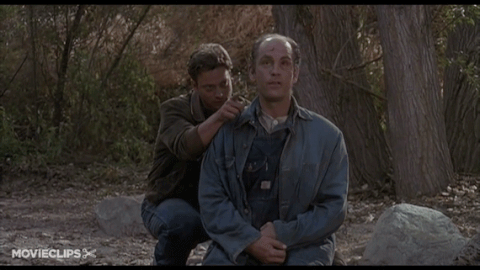
Lennie said, “Tell how it’s gonna be.”
George had been listening to the distant sounds. For a moment he was businesslike. “Look acrost the river, Lennie, an’ I’ll tell you so you can almost see it.”
Lennie turned his head and looked off across the pool and up the darkening slopes of the Gabilans. “We gonna get a little place,” George began. He reached in his side pocket and brought out Carlson’s Luger; he snapped off the safety, and the hand and gun lay on the ground behind Lennie’s back. He looked at the back of Lennie’s head, at the place where the spine and skull were joined.
A man’s voice called from up the river, and another man answered.
“Go on,” said Lennie.
George raised the gun and his hand shook, and he dropped his hand to the ground again.
“Go on,” said Lennie. “How’s it gonna be. We gonna get a little place.”
“We’ll have a cow,” said George. “An’ we’ll have maybe a pig an’ chickens… an’ down the flat we’ll have a… little piece alfalfa-“
“For the rabbits,” Lennie shouted.
“For the rabbits,” George repeated.
“And I get to tend the rabbits.”
“An’ you get to tend the rabbits.”
Lennie giggled with happiness. “An’ live on the fatta the lan;.”
“Yes.”
Lennie turned his head.
“No, Lennie. Look down there acros the river, like you can almost see the place.”
Lennie obeyed him. George looked down at the gun.
There were crashing footsteps in the brush now. George turned and looked toward them.
“Go on, George. When we gonna do it?”
“Gonna do it soon.”
“Me an’ you.”
“You… an’ me. Ever’body gonna be nice to you. Ain’t gonna be no more trouble. Nobody gonna hurt nobody nor steal from ‘em.”
Lennie said, “I thought you was mad at me, George.”
“No,” said George. “No, Lennie. I ain’t mad. I never been mad, an’ I ain’t now. That’s a thing I want ya to know.”
The voices came close now. George raised the gun and listened to the voices.
Lennie begged, “Le’s do it now. Le’s get that place now.”
“Sure, right now. I gotta. We gotta.”
And George raised the gun and steadied it, and he brought the muzzle of it close to the back of Lennie’s head. The hand shook violently, but his face set and his hand steadied. He pulled the trigger. The crash of the shot rolled up the hills and rolled down again. Lennie jarred, and then settled slowly forward to the sand, and he lay without quivering.
George shivered and looked at the gun, and then he threw it from him, back up on the bank, near the pile of old ashes.
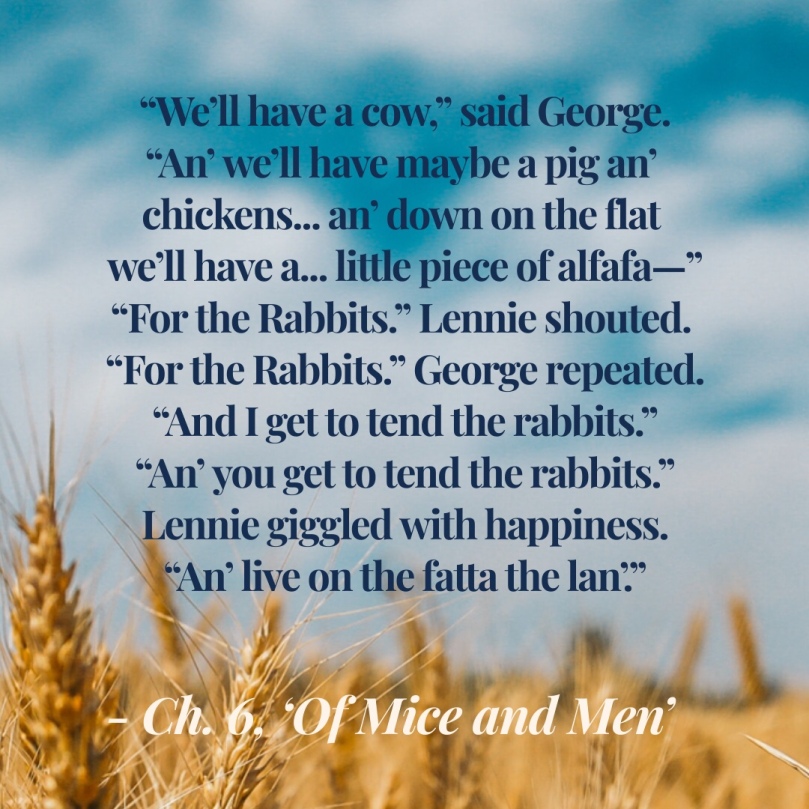
This is such a heartrending scene, and Steinbeck’s genius lies in his ability to stoke strong emotions through naturalistic descriptions and authentic dialogue.
There’s a complete absence of sentimentality in the prose, and yet, in George and Lennie’s litany of mutual echoes, we feel the strong, tragic pull of dramatic irony, as we know that George’s version of “gonna do it soon” and “Sure, right now. I gotta. We gotta.” is very different from Lennie’s.
These are preambles to both a rational self that knows he “gotta do it” to put his friend out of misery, but also to an emotional being who is reluctant to kill out of love.
Contrary to Lennie, who in spite of all the misfortunes continues to hold onto blind optimism, George has long given up on their vision of entrepreneurial self-reliance, as he is fully aware that it just won’t happen to “guys with no fambly” and who “no one gives a hoot about”.
What’s more, he’s come to terms with this through a process of brutal disillusionment, and now, he sees it his responsibility to ‘liberate’ Lennie from the shackles of a Dream that will never be.
Like Crooks, the black stable-hand of the ranch, George understands that accepting your deterministic origins is the only way to live and survive in a deeply unjust world.
Here, it’s worth reminding ourselves of Crooks’ words earlier in Chapter 4, when all the ranchmen, save for the mentally retarded Lennie and the African-American Crooks (clearly the marginalised ones), are out for a night in town –
“You’re nuts.” Crooks was scornful [of Lennie’s insistence that he and George will one day have their own land]. “I seen hundreds of men come by on the road an’ on the ranches, with their bindles on their back an’ that same damn thing in their heads. Hunderds of them. They come, an’ they quit an’ go on; an’ every damn one of ‘em’s got a little piece of land in his head. An’ never a God damn one of ‘em ever gets it. Just like heaven. Ever’body wants a little piece of lan’. I read plenty of books out here. Nobody never gets to heaven, and nobody gets no land. It’s just in their head. They’re all the time talkin’ about it, but it’s jus’ in their head.”
As someone who’s been given the short hand of the stick in life, Lennie will never get the chance to own that “little piece of lan’”; in Steinbeck’s pessimistic vision of the overpromising American Dream, this much is determined.
So, by having Lennie die at the hands of his best friend, Steinbeck shows the compassion of both an author and a fellow human being: if Lennie can’t “get no land” in this earthly life, then the least Steinbeck could do is to push his character closer towards the possibility of the other impossibility – getting to heaven.
What are your views on how the American Dream is portrayed in The Great Gatsby and/or Of Mice and Men?
Do you think that Fitzgerald and Steinbeck are largely wary of what the American Dream promises?
What are your thoughts on the possibility of achieving a “better, richer and happier life” regardless of social ranking?
Comment with your thoughts below! I’d love to hear from you.

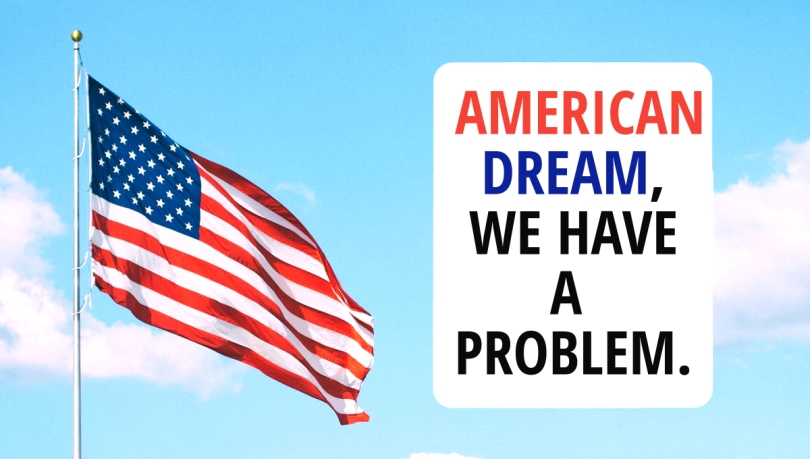
I am a Chinese-literature student and discovered your blog and Instagram today! The content is inspiring and I really like it. PLZ Keep it upppp!!
LikeLiked by 1 person
Thanks for reading! I appreciate it xxx
LikeLike